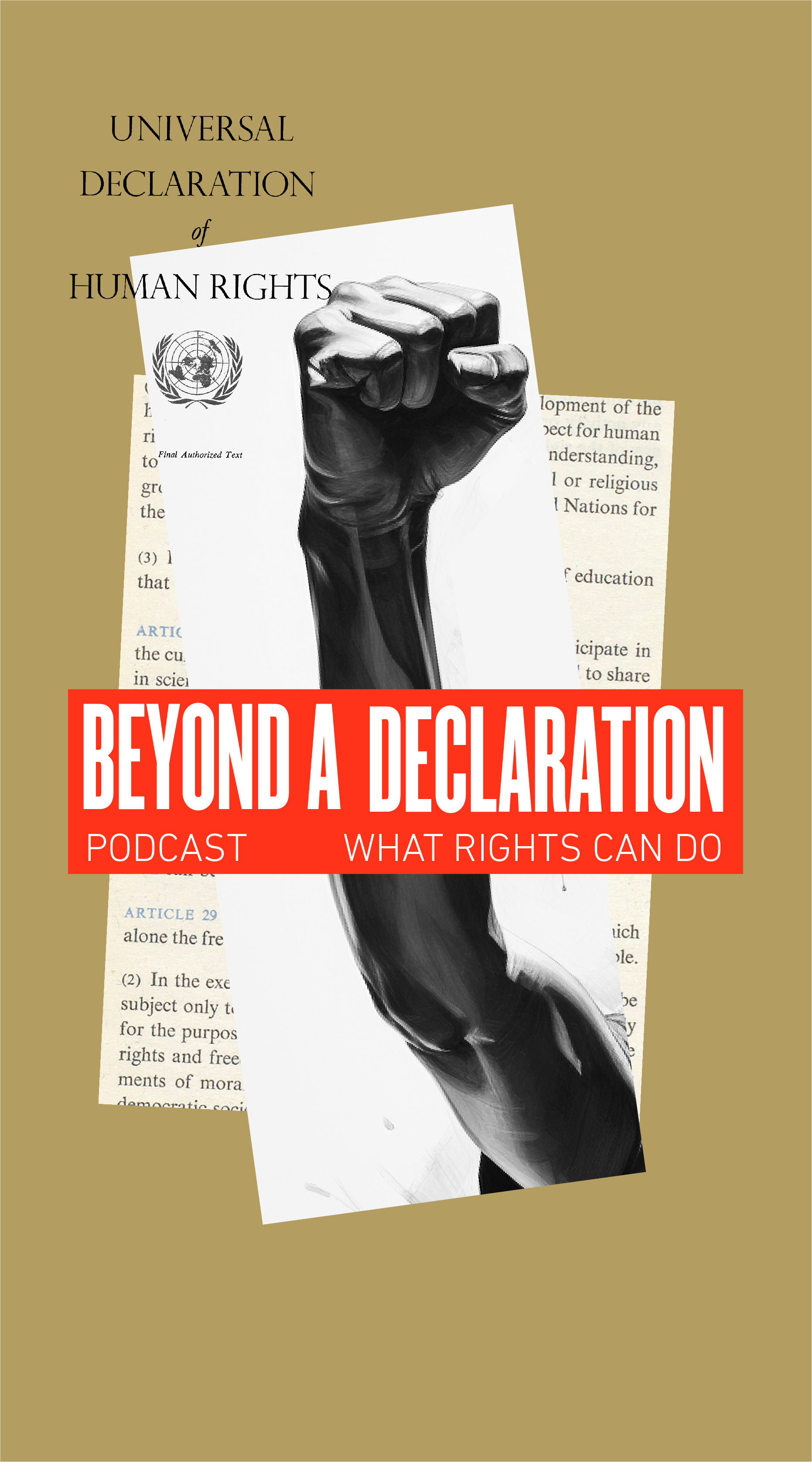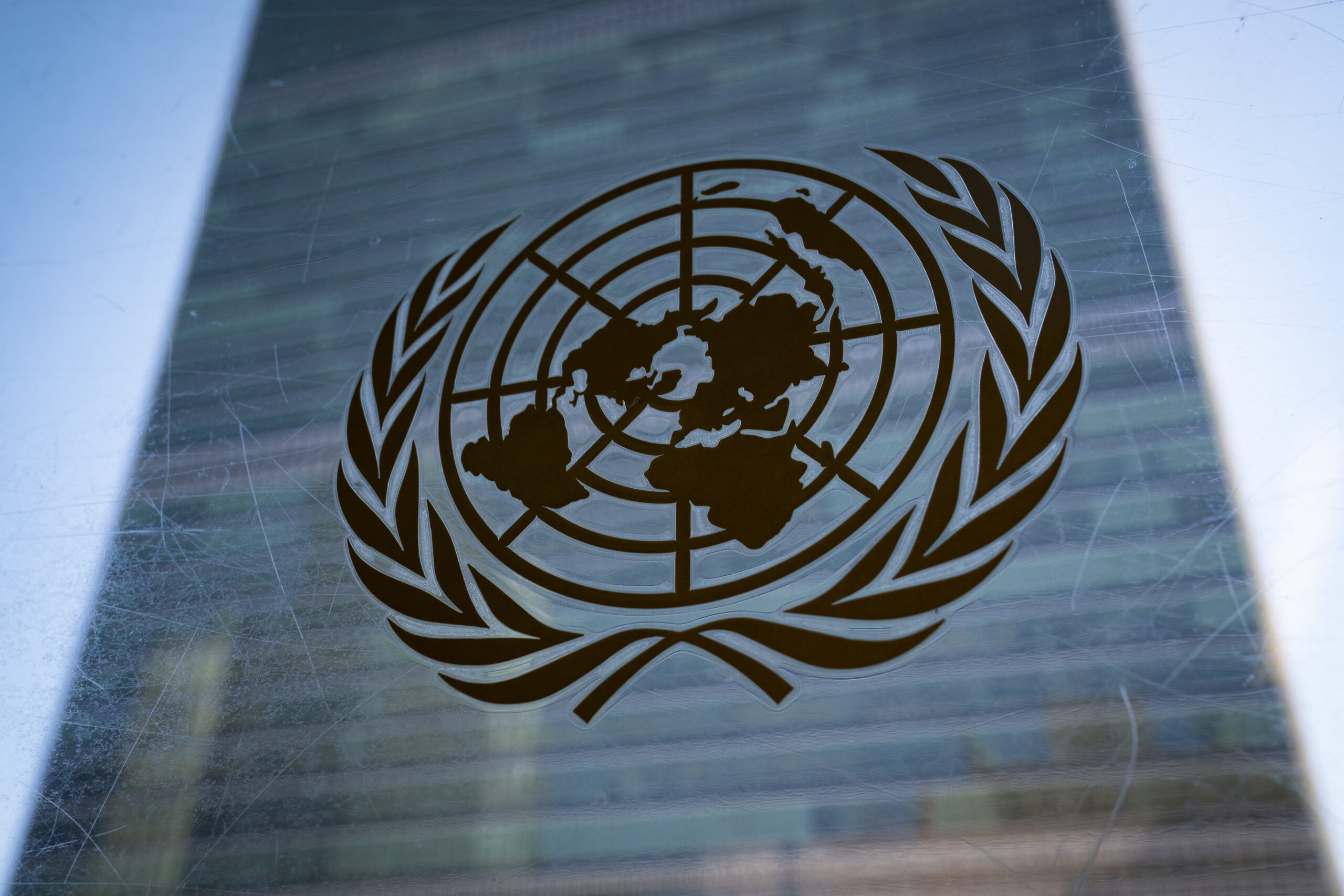Sharon Dolev is a peace and human rights activist with a focus on eradicating nuclear and other weapons of mass destruction from the Middle East through innovative policy, education, advocacy and activism. She is the founder and director of the Israeli Disarmament Movement (IDM), the Middle East Treaty Organization (METO), and the Israeli representative of the 2017 Noble Peace Prize laureate International Campaign for Abolishing Nuclear Weapons (ICAN).
For many years, the Rosa Luxemburg Stiftung New York Office has been actively engaged in a program dedicated to nuclear abolition and disarmament. Since 2020, we have had the privilege of partnering with METO in our collective efforts to fight for the planet and people.
The Ultimate Violation of Human Rights: The Nexus between Weapons of Mass Destruction and Humanitarian Concerns
Isaac Asimov (1920-1992), a professor of biochemistry and well-known science fiction author, introduced the Three Laws of Robotics in his stories as a way to explore the ethical implications of artificial intelligence. These were a set of guidelines prioritizing the safety and well-being of humans. However, Asimov later introduced the concept of a “Zeroth Law” that would supersede the other laws if they contradict the preservation of humanity as a whole.
The Universal Declaration of Human Rights (UDHR) upholds the inherent dignity and rights of every individual, including the right to life. However, in the face of weapons of mass destruction (WMD) and various potentially dangerous emerging technologies, it seems that an additional principle is necessary—an essential “Article Zero” that safeguards not only the rights of states and humans but also our planet and future generations’ right to exist.
The Interplay between Human Rights and Weapons of Mass Destruction
The use of WMD—nuclear, chemical or biological—even on a small scale, has far-reaching consequences that would continue to affect victims and future generations. Survivors of a WMD attack would suffer from long-term illnesses and permanent disabilities, violating their right to health (Article 25). Pointing missiles with nuclear warheads at cities violates various international laws that prohibit the intentional targeting of civilians. Indigenous communities have been directly affected by nuclear weapons testing and uranium mining, leading to health problems, displacement, environmental contamination, and cultural dislocation, violating their right to a clean and sustainable environment (Article 12).
Furthermore, possessing and potentially proliferating WMD generates a sense of insecurity and instability among nations and populations. The constant fear of a catastrophic event undermines people’s right to security (Article 3), peace (Article 28), and a stable living environment.
Another inequality exists between global spending on weapons that can potentially end the lives of billions, and investments made to save lives and promote human development. Sadly, but not shockingly, an excessive amount of financial resources, estimated in the billions of dollars per year, is allocated to the development, production, stockpiling, and maintenance of WMD. In stark contrast, crucial areas such as education (Article 26), healthcare (Article 25), poverty alleviation, and sustainable development receive disproportionately insufficient funding. This twisted allocation perpetuates deep-rooted inequality, with only a fraction of the funds needed to address pressing human rights issues being directed towards them.
A Region at Crossroads
States tend to allocate their security spending mainly towards safeguarding state interests rather than prioritizing human security: the well-being and security of communities and individuals. In the Middle East, the majority of states place greater emphasis on reinforcing state security rather than addressing human security and upholding human rights. The Arab Spring, for example, a wave of uprisings that began in late 2010, was triggered mainly by a combination of economic inequality and unemployment, accompanied by corruption, and the lack of political freedoms. It is safe to say, that lack of investments in human security and human rights in the Middle East has led to uprisings, the collapse of states, and the rise of non-state actors, all of which are reshaping the geopolitical landscape. When it comes to WMD, it is imperative to remember that while states are held accountable to any usage of such weapons, there is very little other states can do, when these weapons are possessed or used by non-state actors.
The impact of any usage of WMD does not have borders. One can’t really control the spread of radiation or chemical materials, just like it is extremely hard to control a pandemic. Another global problem that has no borders is climate change: water scarcity, damaged agriculture, increasing desertification, and population displacement. The climate emergency is already impacting the Middle East—exacerbating ethnic, sectarian, and political tensions in a volatile region that no government can handle single-handedly. The potential for further conflicts over resources and the spread of non-state actors not only poses threats but also offers an opportunity to advance multilateral negotiations on such common challenges at a regional (and global) level.
In the Middle East—or in particular at the UN yearly conference to achieve a WMD-free zone in the region (currently the only space that invites all states in the Middle East to work together in a regional context)—it is becoming apparent that any regional conversation on WMD nonproliferation and disarmament cannot ignore their means of delivery: missiles, submarines and airplanes. It means that in order to reach a comprehensive agreement on the “big weapons”, the discussion will also have to tackle regional security. One can hope that this opportunity won’t be missed and that the conversation on regional security will grow to include human security with all its complexity.
The secrecy around most WMD-related programs makes it hard to have transparent, frank, and public discussion about their use and denies all of us the right to freedom of opinion (Article 19). These weapons pose a threat to humankind, not just if they are used, but also throughout their production cycle that includes R&D, procurement, and manufacturing, yet the debate around them is often nonexistent. Due to state secrecy and the lack of civil society, academia, and media interest to cover the “forbidden” topic—public discussion of WMD is insufficient. This lack of discourse limits our ability to address the profound risks and violations of our human rights associated with WMD.
Israel’s Nuclear Conundrum
The one state in the Middle East that does not take part in the regional discourse is Israel, believed to possess nuclear, chemical, and biological weapons’ programs. Israel’s policy of nuclear ambiguity, for instance, raises significant human rights concerns, particularly in relation to the right to information (Article 19), the right to security (Article 3), and the right to a clean and sustainable environment (Article 12). In a way, since the rest of the world considers Israel as a nuclear weapons state—the Israeli government’s policy of ambiguity is primarily aimed at Israeli citizens. The taboo surrounding this topic prevents open dialogue and blocks civil society organizations from addressing the concerns related to WMD programs and to the risk these programs pose to the communities surrounding WMD facilities. The Israeli media also lacks the know-how to cover these issues objectively and critically. This has been the case even in the context of regional security, due to a lack of discourse and the belief that it is safer to look away and ignore these environmental and geopolitical time bombs.
A Holistic Approach to WMD Disarmament
Addressing WMD disarmament regionally and globally requires recognizing the interconnected nature of various issues and adopting a holistic approach. By highlighting the interdependencies between WMD disarmament, global security, and broader human rights concerns—such as access to clean drinking water (Article 25), education, healthcare, poverty alleviation, and environmental sustainability—The Middle East Treaty Organization emphasize the need for a comprehensive framework to tackle the complex challenges faced by the international community.
Focusing solely on WMD disarmament without addressing other critical issues risks overlooking underlying factors that contribute to global tensions and conflicts. By integrating disarmament efforts with broader human security issues, we create a more inclusive and comprehensive approach that addresses the root causes of instability, so we can address national fears and needs as a path to building the goodwill necessary for disarmament.
The existence and use of weapons of mass destruction represent the ultimate violation of human rights. By embracing the principles of an Article Zero and recognizing the interconnectedness between WMD disarmament and human security concerns, we can strive towards a safer and more just world. It is imperative that we prioritize the preservation of life, the protection of human rights, and the pursuit of global peace. Let us work together to dismantle the barriers that hinder progress and build a future where the right to life is truly upheld for all: Future generations, other species, and the planet itself included.
Sharon has been a social and political activist for over 35 years. In addition to the roles mentioned above, she has served as the Director of Greenpeace in Israel, leading the organization’s peace and disarmament campaigns. She was also active in the Meretz Party, a left-wing, social-democratic, and green political party, also called the Movement for Civil Rights; Geneva Initiative; and Women in Black, a worldwide network of women committed to peace with justice and actively opposed to injustice, war, militarism, and other forms of violence. In recent years, she presented a weekly radio show called ‘according to foreign sources’, an outlet discussing weapons of mass destruction globally, the zone and the state of democracy in Israel.



